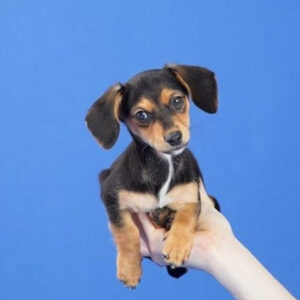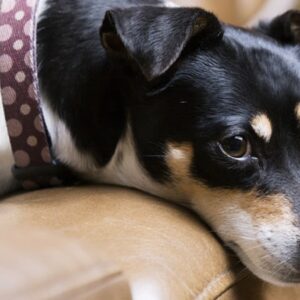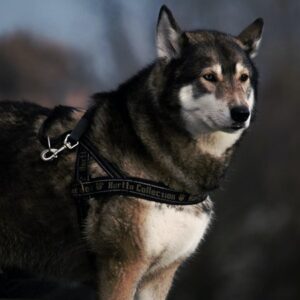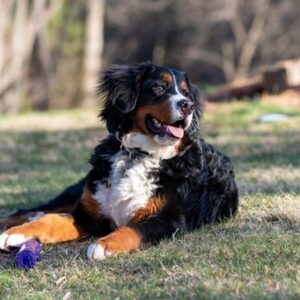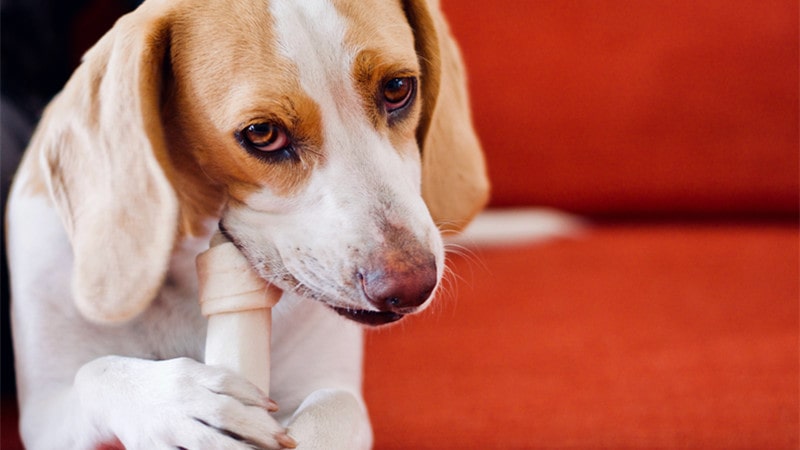
Is your adorable four-legged companion wagging his tail in anticipation whenever you are having lunch? We all know how hard it is to resist the urge not to give in to our pets’ strangely effective silent demands. After all, who can say no to those “please, feed me” puppy dog eyes?
While you are likely to catch yourself providing your dog with certain foods that can throw his diet off balance, some foods may prove more dangerous than others — rib bones being one of them. As a matter of fact, rib bones are somewhat of a controversial topic in the world of greenlit canine snacks.
If you are looking to find out more about rib bones and whether your dog can eat them, continue reading. This article will cover all there is to know about rib bones and what to do if your dog ends up consuming them.
Dogs and Rib Bones

Most veterinarians believe that giving your dog any type of bone is simply not worth the health and safety risks. While larger bones are safer to gnaw on, smaller ones can spell trouble.
• Are pork rib bones safe?
No, pork bones are not safe. Regardless of whether they are big or small, raw or cooked, they tend to splinter. That is to say, pork rib bones can cause damage to your dog’s internal organs if swallowed.
• Are beef rib bones safe?
Yes, beef rib bones are safe as long as they are raw and large enough. Generally speaking, beef bones are harder in comparison to other animal bones. They do not break as easily and pose a minimal threat to your dog’s health.
• Are baby back rib bones safe?
Absolutely not. Since baby back rib bones are small and brittle, they are hazardous to your dog’s well-being.
• Are cooked rib bones safe?
No, feeding your dog cooked rib bones is a bad idea. As a matter of fact, your dog should stay away from cooked bones altogether.
What Happens If a Dog Eats Rib Bones?

Despite your best efforts, there is no guarantee that your furry companion is not going to consume rib bones at some point. If this does happen, one or more of the following issues may arise.
• Your dog’s teeth can break
While it is true that most rib bones are brittle, their hard exterior can still damage your dog’s teeth. Once the teeth are broken and exposed, they can get infected. To address this issue, special dental work or surgical extraction is required.
• Your dog can suffer lacerations
Most raw or cooked rib bones are bound to splinter when your dog munches on them. Unfortunately, this can lead to lacerations in the dog’s intestines, stomach, esophagus, or mouth. Subsequently, infections and internal bleeding may arise.
• Your dog can develop pancreatitis
Rib bones are not low in fat. Fatty tissue that surrounds them can lead to pancreatitis if your dog’s diet is not balanced. Some signs of underlying pancreatitis include diarrhea, fever, lack of appetite, lethargy, and vomiting.
• Your dog’s gastrointestinal tract can malfunction
Splintered rib bones that are caught in the throat may result in your dog choking. However, if the bones end up in his large intestine, constipation can occur. If your dog is unable to empty his bowels, surgery to remove the swallowed bones may be required.
What Kind of Bones Are Safe for Dogs?
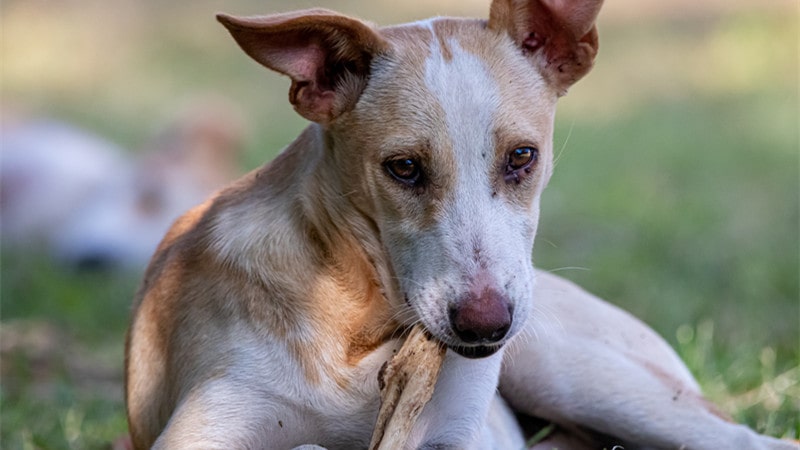
All things considered, you are probably wondering what kind of bones are safe for dogs. To answer your question, let’s start with a general rule of thumb — cooked bones are a no-go. Under no circumstances should you ever give your dog any type of cooked bones.
With that said, you can let your dog chew to his heart’s content on synthetic bones. These toys will satisfy his chewing urges and you will not have to worry about any wayward bone fragments.
However, if you wish to reward your furry friend with an animal bone, you should always opt for beef or lamb bones. Additionally, they need to be thick, large, and uncooked. This will ensure that your dog is unable to break or swallow them.
What to Do If a Dog Eats Rib Bones
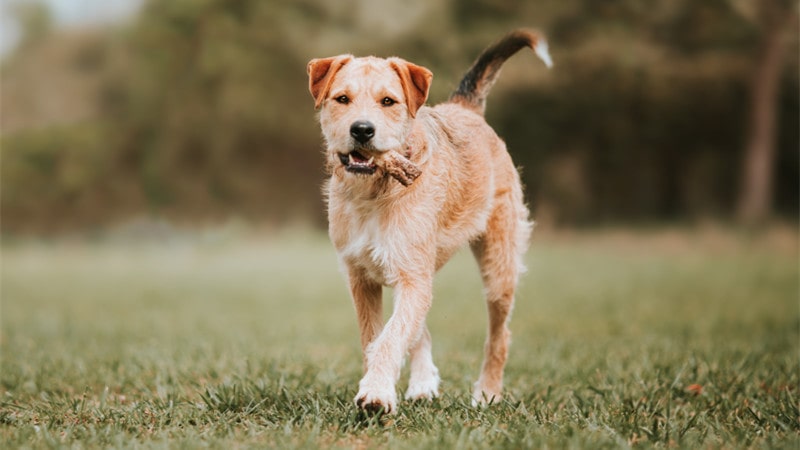
If you suspect that your four-legged companion has consumed a rib bone, you can do a couple of things to mitigate the potential side effects.
1. Remove the remainder of bones
If your dog has consumed a rib bone, there is a good chance more bones are around. Remove any bones you see in the vicinity to prevent your dog from swallowing them.
2. Inspect your dog’s mouth
Make sure to inspect your dog’s mouth thoroughly. If you notice any bone shards stuck between the teeth, underneath the tongue, or lodged in the gums, remove them. By doing so, you will prevent your dog from getting internal cuts
3. Help your dog if he is choking
The best way to help your dog if he is choking is to bring him to the closest veterinarian. However, you can administer emergency measures beforehand. Depending on the size of your dog, you will need to use different methods to have him cough up the swallowed bone.
4. Observe your dog’s behavior
If the rib bone has reached your dog’s gastrointestinal tract, he is likely to show signs of discomfort. The symptoms you need to look out for include restlessness, lethargy, constipation or diarrhea, loss of appetite, and vomiting.
Ultimately, you should bring your dog to a veterinarian for an in-depth examination regardless of whether he exhibits any of the aforementioned symptoms.
A Healthy Dog Is a Happy Dog
In the long run, we can all agree that healthy snacks, like Mighty Munch, are the best way to ensure our furry companion’s safety. After all, there are plenty of interesting, delicious, and chewy treats on the market. While it may take some time for your dog to warm up to them, you cannot go wrong with a safer substitute for bones.
Be that as it may, the choice is entirely yours. Even if you decide to incorporate occasional bone treats into your dog’s diet, remember that a healthy dog is a happy dog!

